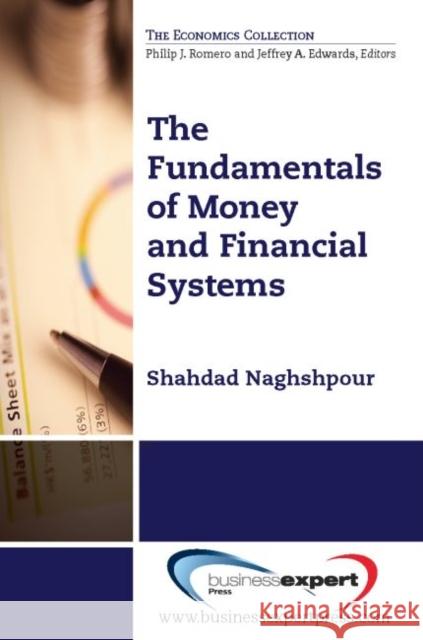The Fundamentals of Money and Financial Systems » książka
The Fundamentals of Money and Financial Systems
ISBN-13: 9781606494844 / Angielski / Miękka / 2013 / 164 str.
It is impossible to comprehend what policies the government should undertake to face the economic reality of the country. Every day we are exposed to a barrage of recommendations and mandates from the left and the right concerning what would be the appropriate course of action (or lack thereof) in order to nullify economic ills or to bring prosperity to the country. But what you and everyone needs is a fundamental basic knowledge of money. This book provides just that. It provides the necessary understanding of money and many of its functions, roles, and uses in economic theories. These theories are essential for the formulation of fiscal and monetary policies. And it is important to understand the meaning of money and be able to differentiate between basic concepts such as consumption, savings, capital, and investment. Would it make any difference, to the overall function of the economy, earnings, employment, etc., if a given sum of money is spent by an individual, a small business, a corporation, or the government? Is it good for the country if people spend money or is it better if they save it? Would it make a difference if spending originates from printing money or citizens' savings? The answer to these and many other economic questions are at the heart of the fiscal and monetary policy that every government grapples with every day. After reading this book you will be ready to understand fiscal and monetary policies, tools, and their effectiveness.
It is impossible to comprehend what policies the government should undertake to face the economic reality of the country. Every day we are exposed to a barrage of recommendations and mandates from the left and the right concerning what would be the appropriate course of action (or lack thereof) in order to nullify economic ills or to bring prosperity to the country. But what you and everyone needs is a fundamental basic knowledge of money. This book provides just that. It provides the necessary understanding of money and many of its functions, roles, and uses in economic theories. These theories are essential for the formulation of fiscal and monetary policies. And it is important to understand the meaning of money and be able to differentiate between basic concepts such as consumption, savings, capital, and investment. Would it make any difference, to the overall function of the economy, earnings, employment, etc., if a given sum of money is spent by an individual, a small business, a corporation, or the government? Is it good for the country if people spend money or is it better if they save it? Would it make a difference if spending originates from printing money or citizens savings? The answer to these and many other economic questions are at the heart of the fiscal and monetary policy that every government grapples with every day. After reading this book you will be ready to understand fiscal and monetary policies, tools, and their effectiveness.











